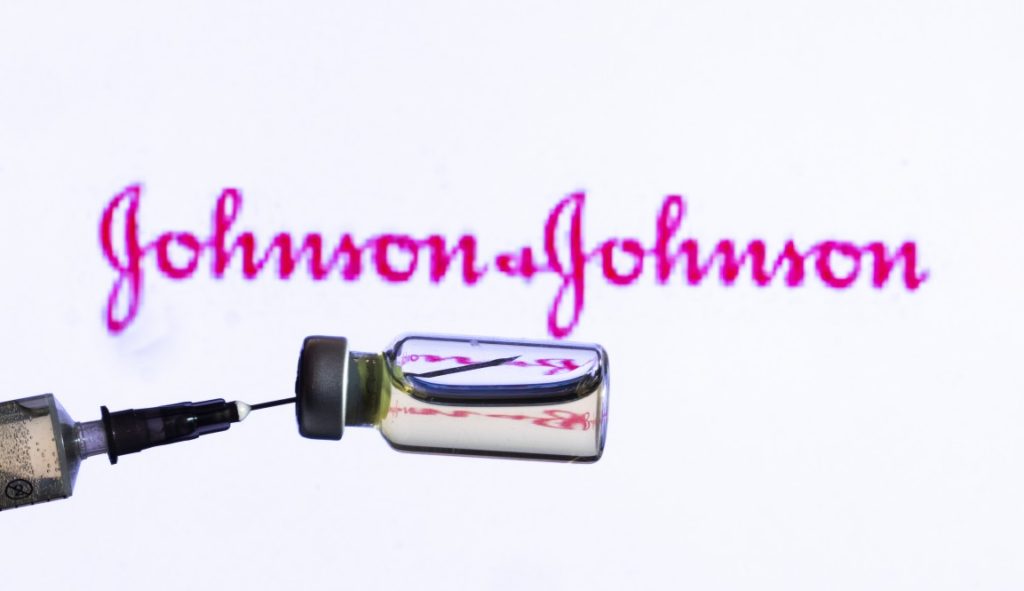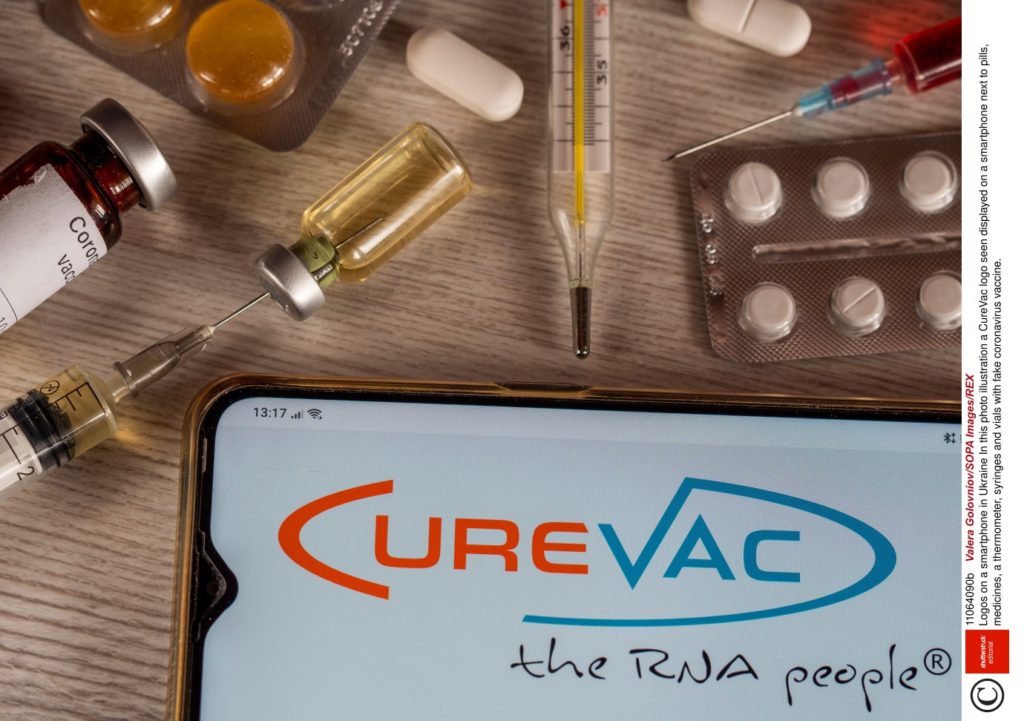IRELAND’S ability to access vaccines is entirely tied to the EU Commission, which forbids any member state from sourcing its own vaccine supplies. On a proportional basis, Ireland will be entitled to 1% of any vaccine sourced by Europe.
Once a vaccine is approved, Ireland can decide to use its allocation or donate it via the UN to lower and middle-income countries. We can also decide to redirect any portion of our allocation to other European countries.
The following three vaccines, which would see Ireland receive enough doses to vaccinate 4.2 million people, will be imminently ready for fast-track emergency approval by the European Medicines Agency (EMA).
THE THREE CONTENDERS ON THE HORIZON ALEADY
PFIZER-BIONTECH On November 9, Pfizer became the first company to conclude an accelerated phase of stagethree trials – a prerequisite for seeking emergency approval from the EMA.
EXPECTED PRODUCTION The company expects to produce 50 million vaccine doses in 2020 and up to 1.3 billion doses by the end of next year.
EFFECTIVENESS AND DOSAGE According to Pfizer, its product is ‘95% effective against Covid-19 beginning 28 days after the first dose’. Two doses are required 21 days apart.
TRIAL SIZE AND SAFETY The firm, which enrolled 43,000 participants in trials, said the vaccine is effective among all ‘age, gender, race and ethnicity demographics’. No serious safety concerns were encountered in the trial, with the most common side-effects being fatigue and headache.
LOGISTICAL CONSIDERATIONS The Pfizer product requires refrigeration at -80C – which complicates distribution plans.
IRELAND’S ALLOCATION On November 11, the EU signed a contract for 200 million doses – of which Ireland will get 2 million doses. The EU can buy an additional 100 million doses – 1 million more for Ireland.
MODERNA On November 16, Moderna was the second firm to announce the conclusion of phase-three trials.
EXPECTED PRODUCTION The company hopes to have up to 1 billion doses available for use around the world next year. Moderna has said it has enough production capacity in Europe to ultimately supply the whole EU.
EFFECTIVENESS AND DOSAGE According to Moderna, its product is 94.5% effective against Covid-19. Two doses are required four weeks apart.
TRIAL SIZE AND SAFETY The firm, which enrolled 30,000 participants in trials, says the vaccine is safe with only shortlived fatigue, headache and pain being reported in some patients.
LOGISTICAL CONSIDERATIONS Moderna’s vaccine remains stable at -20C for up to six months and can be kept in a standard fridge for up to a month. This makes it easier to distribute than the Pfizer product.
IRELAND’S ALLOCATION On November 25, the EU Commission signed a contract with Moderna for an initial 80 million doses – with an option for another 80 million. Ireland can get 800,000 doses of each tranche up to a total of 1.6 million doses.
ASTRAZENECA-OXFORD AstraZeneca, in collaboration with Oxford University, became the third firm to announce the conclusion of phase-three trials on November 25.

EXPECTED PRODUCTION Large-scale manufacturing has begun in over 10 countries to support equitable global access.
EFFECTIVENESS AND DOSAGE Two doses are required a month apart. However, the firm tested two different doses, which resulted in an overall efficacy rate of 90% and 62% respectively. The 90% efficacy rate was discovered by accident when one group of volunteers was mistakenly given just half a dose followed by a full dose – instead of the intended two full doses. This ‘lucky break’ discovery has caused some disquiet, especially since the more successful outcome involved a group aged under 55 – an age demographic less at risk from Covid.
TRIAL SIZE AND SAFETY The firm, which recruited 24,000 volunteers in the UK, Brazil and South Africa, found no serious side-effects although trials were briefly halted in September due to an unexplained neurological condition suffered by one volunteer. Trials were cleared to recommence in October.
LOGISTICAL CONSIDERATIONS The AstraZeneca vaccine does not require freezing and can be stored in fridges already in place throughout the HSE’s current vaccine network.
IRELAND’S ALLOCATION On August 14, the EU Commission signed an agreement with AstraZeneca to buy 300 million doses with an option for a further 100 million. Ireland would be due 4 million from this total.
THE THREE OTHER VACCINES IN DEVELOPMENT
The EU has signed deals with three other firms rushing to develop a safe vaccine. Ireland will be entitled to 1% of any vaccines secured by the EU from these deals.
SANOFI-GSK EXPECTED PRODUCTION Sanofi-GSK hopes to have this vaccine ready for the second half of next year and plans to produce 1 billion doses in 2021. It expects to play an important role in the global push for immunisation after wealthy nations have been inoculated.
EFFECTIVENESS AND DOSAGE The vaccine is intended as a twodose product. Stage-three trial results are not yet available.
LOGISTICAL CONSIDERATIONS The Sanofi-GSK product can be stored in a normal fridge.
IRELAND’S ALLOCATION On September 18, the EU signed a deal for 300 million doses of any successful vaccine from Sanofi. Ireland will be entitled to 3 million of these doses. If Ireland does not need these doses it can donate them to less wealthy countries via the UN.
JOHNSON & JOHNSON EXPECTED PRODUCTION Johnson & Johnson aims to produce 1 billion doses in 2021 once it moves beyond stage-three trials and approval. The firm has pledged 500 million of these doses to low-income countries.

EFFECTIVENESS AND DOSAGE The Johnson & Johnson product is a single-jab trial. Trials, involving 65,000 people, suffered a temporary setback last month when a participant suffered an unexplained illness. Trials have since resumed because no vaccine link with the illness was found but stage-three results are not ready yet.
LOGISTICAL CONSIDERATIONS The Johnson & Johnson product can be stored in a normal fridge for up to three months. Less volume of product is also required since only one dose is needed.
IRELAND’S ALLOCATION On October 21, the EU agreed a deal for 200 million vaccines, with an option for 200 million more. Ireland’s share of this would amount to 4 million, which could be donated to less wealthy countries if not needed here.
CUREVAC EXPECTED PRODUCTION German firm CureVac hopes to produce 300 million doses of its trial vaccine in 2021 and 600 million doses the following year.

EFFECTIVENESS AND DOSAGE Two doses are required. Early data from phase one shows strong antibody responses to the jab.
LOGISTICAL CONSIDERATIONS The CureVac product remains stable for three months at temperatures up to 5C and at room temperature for up to 24 hours.
IRELAND’S ALLOCATION On November 19, the EU signed a deal to purchase 225 million doses with an option for another 180 doses. Ireland would be entitled to 4.5 million of these 405 million doses.



